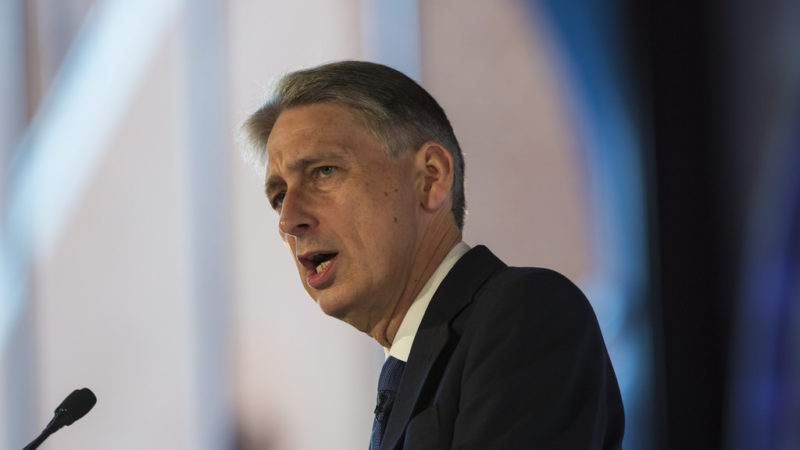The Chancellor should have taken the chance to revive a stagnating UK. Instead he scrimped on it.

Today, we saw a Chancellor caught between Conservative ideology of austerity and the desperate need to revive the economy. He chose Conservative ideology.
The Chancellor needed to invest in the economy but did not even – though the Office for Budget Responsibility expects productivity to remain stagnant. GDP growth rate for every year of the current parliament has been cut to below 2%, a low figure in the post war period.
And though people’s ability to build a sustainable economy depends on their purchasing power, the ‘cap’ on public sector pay is not lifted. The living wage is to rise by 4.4% to £7.83 next year and will give someone working 40 hours a week an annual wage of £16,286. After paying income tax, National Insurance Contributions and ravages on inflation there will be little uplift in the purchasing power of these people.
Overall, the government expects wages to rise by 2.3% next year, down from 2.7% previously forecast. But in an unequal society, this figure is skewed by the rapidly rising wages of fat cats. For ordinary workers, there will be virtually no growth.
While an increase in housing investment and the abolition of stamp duty for first time purchase of property of up to £300,000 is welcome, stagnating wages and house prices inflated by a failed Help to Buy policy mean most people will still struggle to buy a house.
On the NHS, the Health Secretary had publicly asked for a £4bn injection into the NHS. The Chancellor has agreed to provide £3.75bn, though we await the details. Of course, the Chancellor did not say how much of this will be eaten by the PFI payments.
It is on tax where the government most falls flat. The Chancellor claimed that the government has raised £160bn from tax avoidance. This is a sum that is extremely dubious and full of double counting and uncertainties – as I have previously explained.
He also claimed that cuts in corporation tax raised extra revenues. That is nonsense: revenues which could have provided substantial sums for investment have been lost, as I have pointed out here.
Any clampdown on tax avoidance is welcome and the government has announced the possibility of a withholding tax on dubious royalty payments by companies to related entities in low/no tax jurisdictions.
The Chancellor claimed that this would raise £200m and various other measures would raise additional £4.8bn by 2022-23. This is not good enough without a programme of fundamental reforms of the tax system. And the job will be a tough one given no new investment in HMRC has been announced.
The budget is a missed opportunity to put the UK on a strong economic path, especially with Brexit uncertainties. Overall, this is a budget underpinned by failed policies and lack of any vision to rebuild the economy. Hammond should have chosen to revive the economy – instead he’s helping it flatline.
Prem Sikka is Professor of Accounting and Finance at the University of Sheffield and Emeritus Professor of Accounting at the University of Essex. He is a Contributing Editor for Left Foot Forward.
Left Foot Forward doesn't have the backing of big business or billionaires. We rely on the kind and generous support of ordinary people like you.
You can support hard-hitting journalism that holds the right to account, provides a forum for debate among progressives, and covers the stories the rest of the media ignore. Donate today.




2 Responses to “Hammond’s budget picked Tory ideology over boosting Britain’s economy”
Dulari-Leiylah Markelke
For the many a truly failed budget clearly only for the privileged. Tories are stuck in an ideology that is feeding austerity stripping our welfare stripping our public services and not truly addressing tax havens at all Theresa may husband named in paradise papers their big financial backers included in these papers and so for the many the disabled the public sector workers etc nothing changed today
patrick newman
Unfortunately, the two main motivations for these budget measures have little to do with what is in the interests of society and economy. Hammond has prioritised stopping May from easily sacking him and not upsetting too many people in the Tory Party, including the Brexiteer militants. There are two crisis areas he has almost completely ignored – police-justice and education. The latter given a credible sop for mathematics when across the board more cuts are waiting in the wings in lieu of real terms reductions in funding – validated by NAO and IFS.